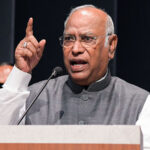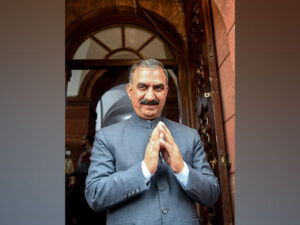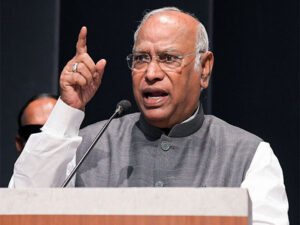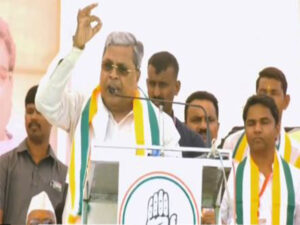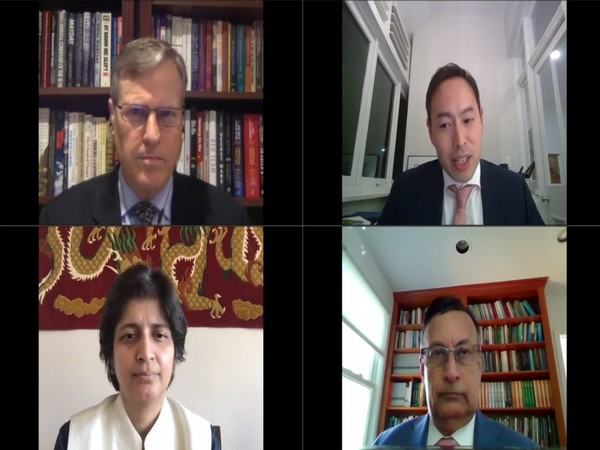
Washington D.C. [USA], June 24 (ANI): Amid simmering tension between India and China following the recent face-off at Galwan Valley in Ladakh, defence experts have called New Delhi to strengthen diplomatic and military ties, especially maritime ties, with its allies.
In a webinar organised by the Hudson Institute, an American think-tank, experts discussed about how the recent skirmishes connect to China’s attempts at strengthening its global posture in the wake of its power grabs in Hong Kong, its economic threats toward Australia, and its growing belligerence toward South East Asia, Japan, and Taiwan.
While the 2,167-mile-long mountainous border has periodically seen conflict between India and China, the two nuclear-armed neighbors, the current standoff has been the most violent in over a half-century.
Patrick M. Cronin, Asia-Pacific Security Chair of Hudson Institute believes that either China is taking an advantage of Covid-19 pandemic and the upcoming elections in the United States or President Xi is acting to strengthen his fading grip within the country.
“The Chinese sense an opportunity, and they know it’s a limited opportunity because they know there is a lot of political pushback on China if the democracies, in particular, can get their act together. So, the Chinese are seizing this opportunity”, he said.
Patrick added, “If you go back to the 1962 War, when did that war begin? It began right after the Cuban missile crisis. That’s no accident. This was not an accident either. This was a deliberate time challenge by the Chinese of the Indians. Xi Jinping needs domestic support. He is losing probably or gaining real doubts about his leadership, about his governance ever since the economic slowdown, that’s been affected further down by pandemic, the handling of the pandemic, the relations souring with other countries around the world”.
“All of those are calling into question Xi Jinping’s leadership at a time when he is doubling down on Sinosphere and cracking down on Uyghur, in Tibet, Hong Kong and threatening Taiwan. It is even threatening Australia and having a cold war with the United States. All of these actions, I think will be a second guess by thinking Chinese, who really wonder whether Xi Jinping is the man to lead them for `China Dream’ or maybe Xi thought they should take a different direction here in the next few years”, said Patrick.
Experts also believe that at this critical juncture India needs to join hands with democracies with which it has a military alliance.
Aparna Pande, Director, Initiative on the Future of India and South Asia at the Hudson Institute said, “The Quad is something that China is worried and concerned about, especially because now we are talking about Quad Plus, which includes ASEAN. Even many of the European countries like France and Germany are playing a bigger role. So, you may have more democracies which have military and maritime presence in the region”.
She added, “Second, India has been speaking about including Australia in the Malabar military exercises, in addition to Japan. So, it would be a kind of a quad military exercise even if not under quad. And that would send a message to Beijing. Finally, India, as part of the Indian Ocean, Indo-Pacific and quad strategies, may be India could also finally boost its Andaman Nicobar command, because that lies straight on the Malacca Straits and that will have an impact on how China views Indo-Pacific. So, I think there’s a lot India can do”.
“India does not like alliances, but in 1971, India did sign a treaty with Soviet Union, even if temporary, the aim was to send a message to China”, said Aparna.
John Lee, a senior fellow at the Hudson Institute said, “In a Covid-19 world, which we are currently in, where Chinese actions are increasingly being called out in all parts of the world; India will win more friends and sympathy than Beijing”.
He added, “It’s heartening that India is invited to attend the G7 Summit later this year by President Trump. My suggestion is, India should make a show of being a natural maritime and continental counterpoint to the values and policies of China in the region”.
The event was moderated by Husain Haqqani, Director for South and Central Asia at the Hudson Institute. (ANI)





